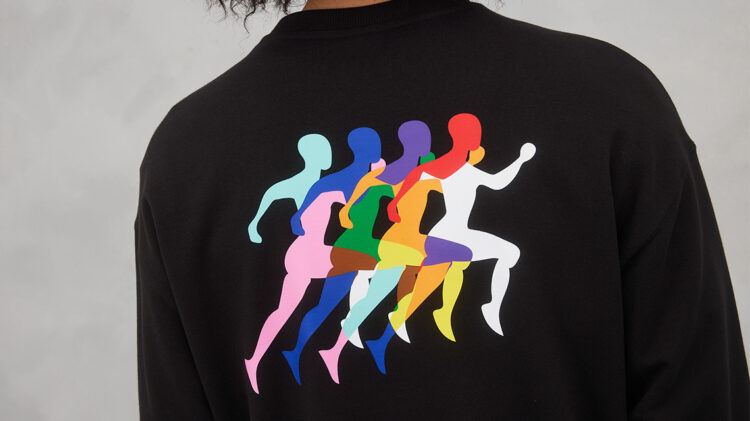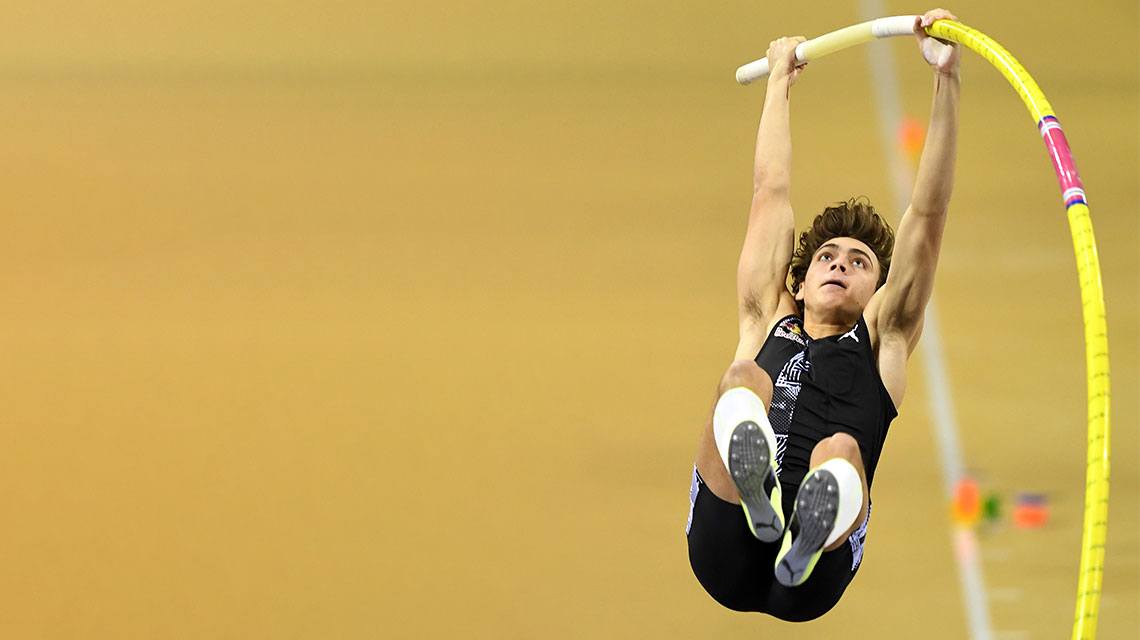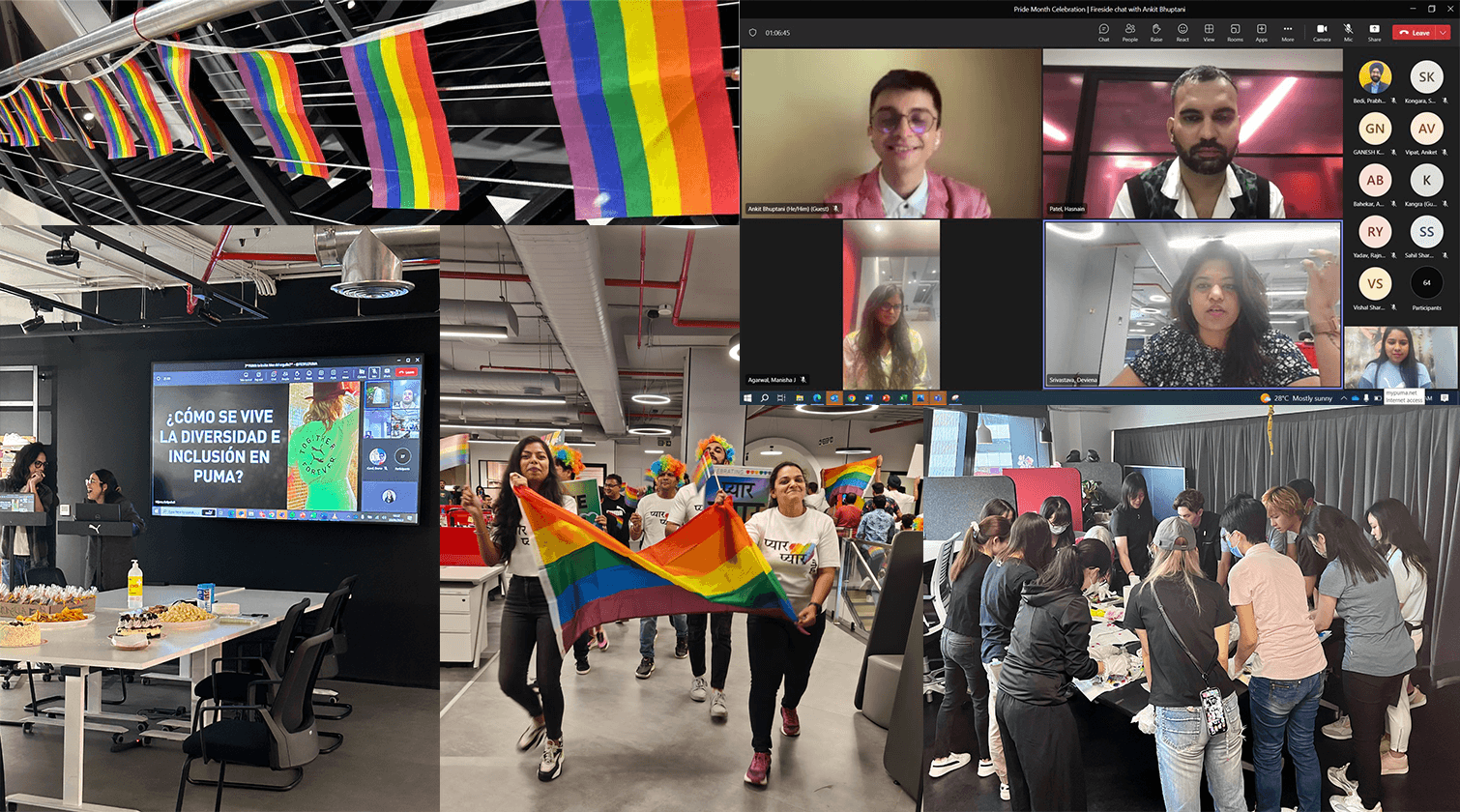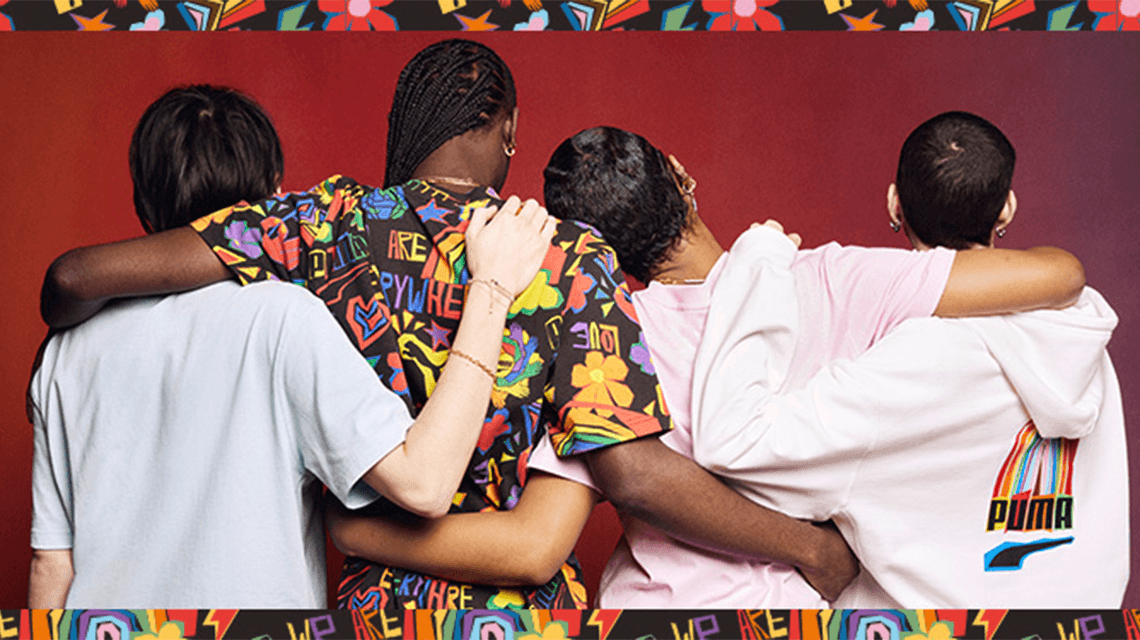
About queer rights
and queer soccer players
Interview with PUMA´s long term partner, Pride Association CSD Nürnberg
June 5, 2024Interview with PUMA´s long term partner, Pride Association CSD Nürnberg
June 5, 2024Happy Pride Month! We want to use this time to highlight PUMA’s Pride initiatives globally and start with Germany. Everyone is invited to participate, learn and have fun. We see diversity as one of PUMA´s superpowers and we´re thrilled to be teaming up with Pride Association CSD Nürnberg in Germany for the fifth year running. 🎉
Our values simply fit together and we´re excited to collaborate on local events in the Nuremberg region again. You’ll catch PUMA with a speech contribution at the kickoff of the CSD Nürnberg Pride Weeks and we hope that many PUMAs will join the Pride Parade, and, of course, the after-party! 🌈🎊
CATch Up talked with Bastian Brauwer (CEO at CSD Nürnberg) and René Scheuermann (Stage Program Director at CSD Nürnberg) about the current state of rights for the queer community in Germany and around the world, why no active male soccer player in the Bundesliga has yet come out about his queer sexuality, and what achievements the queer community has made in recent years.
“Let’s be honest, even if there are penalties if racist or discriminatory slogans are shouted from the stands, this still happens from time to time in this day and age. Being gay is still very much associated with weakness in society. And a man in active soccer should never be weak – which is absolute nonsense. This makes people reluctant to talk openly about their true selves.” – René Scheuermann (Stage Program Director at CSD Nürnberg)
Can we talk about the current general situation for queer people? We are interested in your opinion.
René: If we look at the situation in Germany, we can say that there has been a lot of progress in the past. We have “marriage for all”, we are no longer discriminated against in tax matters, a self-determination law has been or will come into force and we are no longer prosecuted on the basis of our identity or sexuality. However, there are always things to improve, for example in adoption law.
But if we look at the rest of the world, there is still a lot more to do. In Muslim countries in particular, homosexuality is still prosecuted with the death penalty or other severe punishments. Not to mention exclusion from society. But we don’t need to look far to observe abuses. In Russia, queer people don’t have an easy life.
A non-binary person has just won the Eurovision Song Contest in Europe, we have marriage for all in more and more countries and some visible queer politicians. You might think there is a societal shift towards more normality. Right or wrong?
René: That is partly true and partly false, I think. Yes, we have achieved greater visibility. There are people who stand by their sexual and gender identity in public. At the same time, however, visibility also provides a target. Unfortunately, we are still a long way from 100% normality here in Germany. This certainly has something to do with the shift to the right, which is happening not only in Germany but also in Italy, for example. That is why we cannot rest on our laurels.
Basti: The fact that it is still an issue when people who are in the public eye come out shows that it is not yet normal. However, if there is a complete lack of coming out, and male professional soccer player are a prime example of this. It makes it very clear to us that all is far from well. A joint outing was planned at this year’s International Day Against Homophobia, Biphobia and Transphobia but in the end not a single professional came out.
Why are there still hardly any examples of openly queer professional athletes in men’s soccer? With the UEFA European Championship and the Copa América 2024 just around the corner, this topic is currently boiling up again. So far, however, without any more coming out stories. Why do you think athletes don’t dare to talk openly about their sexuality?
René: There is currently no example of an active professional athlete in men’s soccer in Germany in the top two leagues in the Bundesliga. Thomas Hitzlsperger only did so after the end of his career. Whereas in women’s soccer, not conforming to heteronormative society is not a problem at all. I suspect that it’s still down to the fear of losing sponsors, being discriminated against on the pitch by the public or being ostracized by your own team. Let’s be honest, even if there are penalties if racist or discriminatory slogans are shouted from the stands, this still happens from time to time in this day and age. Being gay is still very much associated with weakness in society. And a man in active soccer should never be weak – which is absolute nonsense. This makes people reluctant to talk openly about their true selves.
PUMA clubs such as Borussia Dortmund and FC St. Pauli are committed and regularly campaign against homophobia in the stadium. What else would you like to see?
Basti: Visibility and support. Without openly queer professionals and tough penalties for queer hostility, which are then also implemented, there will be no change. Even today, fan culture in soccer stadiums is still a regular place for racism, misogyny and queerophobia. As long as many of the clubs only pay half-hearted lip service to this and incidents are not resolutely prosecuted and severely punished, nothing will change.
“Without openly queer professionals and tough penalties for queer hostility, which are then also implemented, there will be no change. Even today, fan culture in soccer stadiums is still a regular place for racism, misogyny and queerophobia.” – Bastian Brauwer (CEO at CSD Nürnberg e.V.)
According to a survey by the European Agency for Fundamental Rights (FRA), 57% of respondents from the German LGBTQIA+ community have experienced harassment and 16% violence. Why are queer people repeatedly attacked?
René: I think that it may have to do with prejudice on the one hand, but also with some people repressing their own sexuality. Faith can also play a major role. Because it often goes hand in hand with ideas of purity and the view that only the heteronormative lifestyle is natural, while other sexualities are pathological behavior.
Basti: And people often look for supposedly weaker (minority) victims out of their own dissatisfaction.
How can individuals and other organizations get involved or contribute to your cause?
René: On the one hand, we always need people who contribute to filling CSD Nuremberg with life. Be it through our own themed information events, workshops or panel discussions. Or even the contribution of personal ideas and concepts at our regular organization meetings. Because there is not just one queer community. The community consists of many communities with different needs and wishes. And in order to organize a successful Pride Parade, diversity is a decisive factor. Because we want to be there for all queer people. We must not forget that the CSD is organized on a voluntary basis. We are always very grateful for every helping hand. On the other hand, an event or visibility in general costs a lot of money. We rely on support from companies that also share our values, such as PUMA. Because we don’t want to support pinkwashing.
Thank you both very much for the interview. We are looking forward to the Pride Weeks in summer with you and to welcoming you to our PUMA HQ summer party beforehand.




